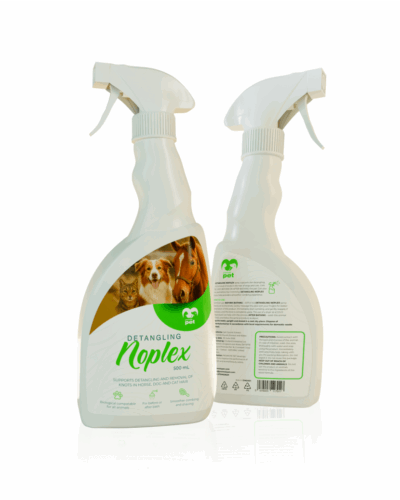Free delivery for orders over £45

Why Do Dogs Eat Grass? Understanding Your Canine’s Curious Habit
Table of Contents
Have you ever wondered why your dog eats grass? This peculiar habit can often leave pet owners puzzled, leading to concerns about canine behaviour and dog health. Understanding the reasons behind this behaviour can help you ensure your furry friend’s well-being. By exploring the nature of grass eating, you’ll discover when it’s normal and when it might signal a health issue, as well as find effective ways to manage or prevent this behaviour, in line with expert advice.
Why Do Dogs Eat Grass?
Many dog owners observe their pets munching on grass and wonder why they exhibit this intriguing behaviour. Some theories suggest that dogs might be intuitively seeking to fulfil a nutritional deficiency. Grass contains fibre, which could aid in digestion or relieve gastrointestinal discomfort. Furthermore, this habit is thought to be a vestigial instinct, inherited from their wild ancestors, who would consume different parts of their prey, including the stomach contents of herbivores.
On the other hand, dietary balance is crucial. Even though dogs are primarily carnivorous, they might occasionally crave a bit of roughage. However, not all grass consumption signals a nutritional shortfall. For some dogs, eating grass can simply be a pleasurable activity or a way to pass time due to boredom. Additionally, some studies propose that grass might help eliminate parasites, although this theory lacks extensive scientific backing.
Observational studies indicate that less than 25% of dogs vomit frequently after eating grass. This suggests that inducing vomit may not be the primary reason for this behaviour in many cases. It’s not always a sign of illness unless accompanied by symptoms like lethargy, appetite loss, or persistent vomiting.
Is Grass Eating Harmful to Dogs?
Many dog owners find themselves puzzled by their furry friends’ tendency to munch on grass. It’s a curious habit that can often raise concerns. While it might appear instinctual, the notion that grass is harmful to them can be misleading. Grass eating isn’t automatically dangerous for dogs, but it warrants a closer look.
A significant aspect to consider is the possibility that dogs eat grass as a natural remedy for an upset stomach. This behaviour might facilitate vomiting, which some dogs seem to do intentionally to relieve bloating or nausea. However, it’s important to observe your dog’s behaviour after grass consumption. If they show additional symptoms like persistent vomiting, lethargy, or loss of appetite, it might indicate an underlying health issue that requires veterinary attention.
Moreover, ingesting grass that has been treated with chemicals can indeed pose a threat to dogs. Pesticides and herbicides used in lawns or gardens can be toxic. It’s crucial for pet owners to ensure the grass their dogs have access to is free from such harmful substances. Keep your dog away from unknown grassy areas or areas that may have been chemically treated to avoid any risk of poisoning.
Overall, while grass munching isn’t inherently dangerous, recognising the warning signs of potential health issues is vital. Regular veterinary check-ups and maintaining a safe environment for your dog will help ensure that this curious habit remains a harmless one.
Understanding Canine Behaviour
In the intricate world of canine behaviour, it’s essential to recognise that dogs communicate in ways that reflect their instincts and emotions. Understanding the actions of our four-legged companions can help us address their needs effectively. When it comes to the curious habit of grass eating, several behavioural cues can provide insights into why dogs engage in this seemingly peculiar activity.
Dogs are driven by a range of instincts inherited from their wild ancestors, and grass eating could be rooted in such behaviours. Some experts believe it might be a form of exploration or play. Observing your dog’s behaviour closely when they’re outdoors can reveal more about their motivations.
It’s also important to consider the social aspect of canine behaviour. Dogs often learn from each other, which means if one dog starts eating grass, others might follow suit simply because it’s a group activity. This isn’t necessarily harmful, but it is a behaviour that benefits from monitoring.
Every dog is different, so understanding the individual personality and preferences of your pet can be crucial. Some dogs might eat grass out of boredom or anxiety. Providing enriching activities and ensuring they have a stimulating environment can sometimes decrease this behaviour. Recognising and interpreting body language, such as tail wagging or ear position, is a skill that can enhance your understanding of their actions and needs.
Addressing the emotional well-being of dogs is equally necessary. Anxiety or stress triggers might lead them to seek out grass eating as a self-soothing activity. Regular playtimes, quality interactions, and positive reinforcement can help maintain their emotional balance and potentially reduce the need for grass in their diet.
When to Worry About Grass Eating
Observing your dog munching on grass might leave you puzzled, especially when wondering if it’s a harmless habit or a cause for concern. While many dogs devour grass without any adverse effects, there are certain situations where this behaviour might signal underlying health issues.
- Frequent and Excessive Consumption: If your dog is eating grass more than occasionally, it could be a sign that something isn’t right. Monitoring how often your pet indulges in this activity can provide insights into its health and needs.
- Vomiting: A dog that eats grass and vomits afterwards might be trying to soothe an upset stomach or induce vomiting, but if this becomes a regular pattern, it might indicate gastrointestinal issues.
- Behavioural Changes: Sudden interest in grass eating, alongside other behavioural shifts like lethargy, loss of appetite, or changes in bowel habits, warrants attention. These may be signs of stress, anxiety, or other emotional problems.
- Nutritional Deficiencies: Dogs may resort to grass to make up for a lack of certain nutrients. Ensuring your canine is on a well-balanced diet can often mitigate excessive grass eating.
- Parasites: If your dog continues to eat grass persistently and shows signs of discomfort, check for parasites like worms, which could be affecting their health.
Proactive Steps
Remain observant of your dog’s overall health and habits. Consistent behaviour, when combined with symptoms such as those described, may require veterinary advice to ensure your furry friend is in optimal health.
Natural Remedies to Discourage Grass Eating
Exploring natural remedies to address grass eating in dogs requires understanding the underlying reasons for this behaviour. While not harmful in all instances, it is beneficial to consider alternative solutions to curb this habit effectively. Dogs might resort to eating grass due to dietary deficiencies, boredom, or even digestive relief. To cater to these needs without turning to grass, consider enriching their diet with more fibre. Adding dog-safe vegetables, like carrots or green beans, can fulfil their fibre requirement and reduce the temptation to snack on greenery.
Another approach could involve enhancing mental and physical stimulation. Dogs are curious creatures, and boredom might lead them to explore the world through their mouths. Incorporating new toys or engaging them in more interactive play sessions outdoors can divert their focus from eating grass. Puzzle toys filled with treats can keep them occupied, stimulating their minds and preventing grass munching.
The inclusion of some herbal remedies might also help discourage grass-eating behaviour. Try adding a small amount of chamomile or peppermint to your canine’s food or water. These herbs can soothe the stomach and might reduce the digestive urge to eat grass. However, this should be done with care and possibly under the guidance of a vet, especially if your dog is on medication or has health concerns.
Lastly, assessing the environment is crucial. Ensuring that the grass in your garden is free from pesticides and chemicals reduces the risk of toxin ingestion if your dog occasionally eats grass. Creating a safe, engaging space for your dog while working on these natural interventions can contribute significantly to reducing their curiosity-driven snack on grass.
Consulting a Veterinarian
When your dog’s grass-eating habit becomes frequent or concerning, seeking professional advice from a veterinarian is a prudent step. Veterinarians can offer insight into whether your pet’s behaviour is symptomatic of underlying health issues or simply a harmless pastime. It’s essential to provide them with detailed observations about your dog’s behaviour.
Discuss your dog’s diet during the consultation. A diet lacking in nutrients or fibre might lead some dogs to seek alternative sources. The veterinarian might suggest dietary adjustments to mitigate the habit.
Additionally, vets can conduct health assessments to check for potential gastrointestinal problems or parasites that could encourage grass consumption. Diagnostics such as blood tests or faecal exams can rule out medical causes.
Moreover, vets provide guidance on safe grass consumption, advising on how to discourage eating potentially harmful plants and addressing any concerns about chemicals like pesticides on grasses.
Behavioural insights from a vet may also help. By discussing your dog’s mental and physical activity levels, they can advise if boredom or anxiety might be a driving factor, suggesting ways to enhance your dog’s overall well-being.
Remember, engaging a professional reinforces confidence in your pet care decisions, ensuring that your dog’s quirky behaviours remain just that—quirks rather than health risks.
Ensuring a Healthy Diet for Your Dog
It’s vital to ensure your dog has a balanced and nutrient-rich diet to support their overall health and prevent unusual eating habits like grass consumption. A dog’s diet should include the right balance of proteins, carbohydrates, fats, vitamins, and minerals. Proper nutrition can influence their energy levels, coat condition, and even their behaviour.
Providing high-quality commercial dog food that meets the standards set by pet food authorities ensures that your canine receives adequate nutrients. Some dogs, however, may have specific dietary needs, requiring a personalised approach. Consider incorporating home-prepared meals or supplements into their diet under the guidance of a veterinarian.
Monitoring your pet’s eating habits is also crucial. Sudden changes in their pattern may indicate nutritional deficiencies. Introducing a variety of safe vegetables or fruits as healthy treats can also aid in diversifying their diet. This not only adds nutritional value but can also deter your dog from seeking grass for missing nutrients.
Keep an eye on your dog’s weight and adjust their food intake accordingly. A healthy weight can prevent associated health problems and encourage them to stay active. Regular veterinary check-ups can help ensure that your dog’s diet remains suitable for their life stage and activity level.
Contact Us
- +44 07391626201
- info@promotepet.com
- 16, Cromwell Close - Oxford - UK
COPYRIGHT © PROMOTE PET. ALL RIGHTS RESERVED. © 2024 Chofard Enterprise Ltd. Chofard Enterprise is a company registered in England and Wales with a company number 13073779 VAT number GB 370644889. 16, Cromwell Close, Oxford OX30RW, United Kingdom – trading as Promote Pet Online Shop.











